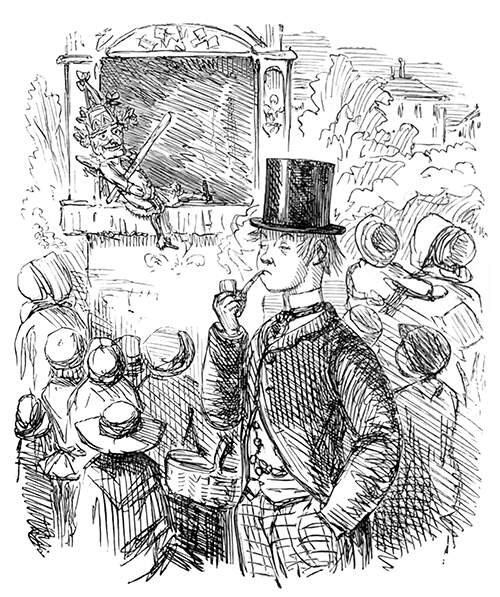Whoever is careless with the truth in small matters cannot be trusted with important matters.
Albert Einstein
Good advice, respected or authoritative opinion and trusted evidence all rest on the integrity of the source. The issue for policy makers, journalists, the courts, business leaders and others ultimately comes down to how did the source of critical information - that which supports a significant decision (to invest, to divest, to change direction, etc.) - arrive at that perspective?

Courtesy of Creative Commons
This question was looked at specifically for the conduct of scientific research several years ago by the Council of Canadian Academies (CCA) - an independent, not-for-profit organization - in a report entitled “Honesty, Accountability and Trust: Fostering Research Integrity in Canada”. The significance of the report is that the policy community within government, which relies on research integrity, felt sufficiently concerned about research misconduct that they commissioned an expert panel to look into the matter.
So what does that have to do with management consulting? Our profession rests upon the same degree of reliance by our clients on integrity - how we design and construct answers to business issues. The extent to which there is confidence in how we go about our affairs opens up new opportunities and allows for repeat business.
Their Proposed Framework
The recommended approach crafted by the CCA panel included:
- A system-wide approach that encompasses all disciplines;
- A common set of definitions, values and principles that are accepted and implemented by all actors in the research enterprise;
- A fair and timely process for managing allegations of misconduct;
- A centralized mechanism for information management and research on issues related to research integrity; and
- A strong focus on proactive and preventative measures by way of education, training and advice.
Ultimately, the Panel endorsed the creation of a body – the Canadian Council for Research Integrity (though it wasn’t adopted by the government of the day).
Parallels with CMC-Canada
Many of the elements of the approach crafted by the Panel have evolved over the years into essential elements of the CMC-Canada model:
- A focus on process and relationship building regardless of technical competence;
- A Common Body of Knowledge that encapsulates our commonly held definitions, values and principles; a process for dealing with misconduct; education, training and advice;
- A governance and financial model that is self-sustaining;
- Regulatory recognition of the title.
In the CMC-Canada model, our adherence to and mastery of The Common Body of Knowledge, the consulting process and professional development augments our claims to technical competence based on experience and education.
Above and Beyond the Model
While we have a Code of Professional Conduct that addresses our ethical fibre, you will no doubt run across professionals who live, and thus model or demonstrate professional conduct. What is it that they do? I suggest they constantly weigh up ambiguous situations and then act ethically to resolve problems or rectify messy situations. They might work through a series of questions such as the following:
- Is the practice or activity illegal? This is not a trick question. If you are in business for the long term, the answer is don’t do it!
- Is the practice or activity immoral? Again, if you intend to be in business for the long term, don’t do it! There are many examples of politicians, business leaders etc. who thought they were pushing the boundaries of societal acceptance without realizing they had crossed it and eventually deemed unfit to lead (questionable judgement)
- Does the practice present an ethical dilemma (a conflict between moral imperatives)? Short term vs. long term (stay in a local community where your family has networks and ties or take a major hike in pay and status to move far away?); justice vs. mercy (do you fire a promising journalist caught plagiarizing?); individual vs. community (does the librarian respect privacy or inform the police that someone is researching how to construct a bomb?); or truth vs. loyalty (do you tell your colleague who is off to sign a mortgage for his first house that the boss told you in confidence that he is to be let go?).
If the latter, there is a need to find a way to resolve the dilemmas. It would make sense to gather all the facts first – what really happened, what else might be relevant, are there alternative points of view?
Once clear on what one is facing, it would make sense to establish principles to guide decision-making. As it turns out, there are several available that have been in use for centuries – utilitarianism (what provides the greatest good?); fairness (is everyone treated the same way?); the golden rule (do unto others as you would have them do unto you). I believe we all have a tendency to use one principle more than others. As in many situations, it may be prudent to construct creative third options that might get decision-making away from choosing one over another. For example, finding a writing job outside of journalism for the once-promising journalism student.
Repeated use of a simple protocol or sequence of steps such as that outlined above will lead to mastery and, over time, integration into how you work. My bet is that you will add your personal touch and creativity to resolution of the ethical problems that become more evident to you.
Being a Professional
While our Code provides direction on responsibilities to the public, to the profession, to other members and to clients, it does not necessarily help you to establish a personal approach to resolving situations that may arise outside of your work.
Working beyond the Code of Professional Conduct and integrating the features and characteristics of our approach all contribute to being a professional in the eyes of your peers.
While certification is a strong symbol of belief in how to be a good professional, how you conduct yourself beyond our framework is a much more powerful statement.



